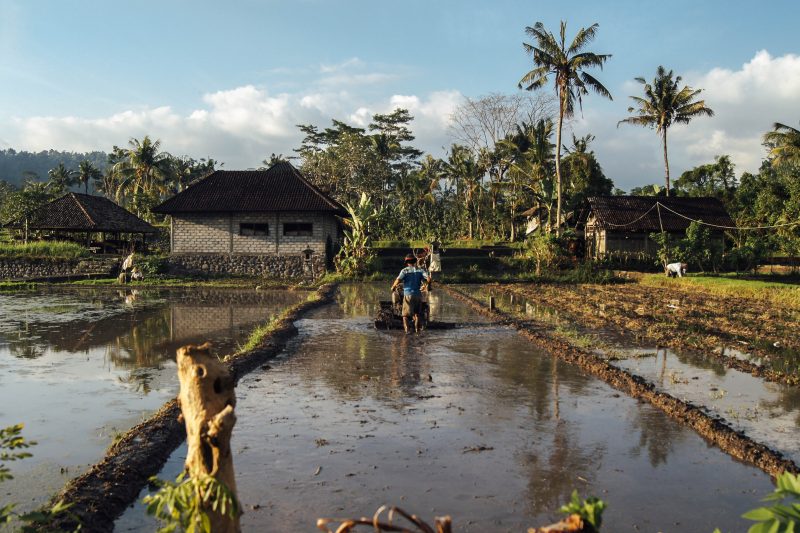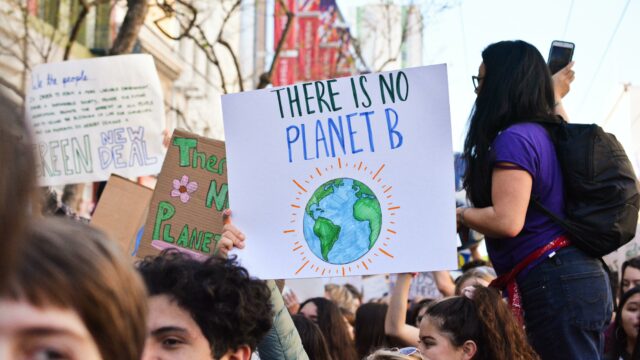Right now will always be our last chance to tackle climate change
Reflections on the latest IPCC climate science report and life in the last-chance saloon

The IPCC’s latest climate report was published this week, synthesising the last seven years of painstaking scientific research into the scale, scope, causes and effects of climate change. It’s been described as a “final warning”, our “last chance”, and a “survival guide” for humanity; a roadmap for what we need to change, and a sobering look ahead at what will happen if we do not.
But then again, every major climate report that’s been published since Kyoto in 1997 has had the same strapline: “Humanity’s last chance to avert disaster”. Which leads to the entirely reasonable question – how many “last chances” are we going to get?
Ultimately, this latest IPCC report doesn’t tell us much that’s new, or even anything that we haven’t been hearing for at least the last decade. Media coverage was predictable, desultory; a few cliched headlines accompanying the same hackneyed images of storm-battered palm trees and melted glaciers that are already just part of the wallpaper.
And this – not complacency, but resignation – is surely the most dangerous outcome of the procession of scary climate reports: the steady drumbeat of scientific warning has become part of the background noise.
Life in the last-chance saloon
So, the IPCC report is our “last chance” to change course towards a better future – just like we had a last chance at COP26, a last chance at the Paris Agreement, a last chance at Copenhagen, etc etc. Does this procession of last chances mean that maybe we’ll have some more last chances in the future, so maybe we don’t really need to worry about doing all that much for this one?
We will have more last chances in the future. And we had last chances in the past. In fact, every single moment is our last chance – today, tomorrow, yesterday, five years hence: they will all be last chances, in their own unique way, to make the future of humanity that little bit brighter.
That’s because “averting climate change” is not a binary proposition; it’s not a black and white thing. The Titanic either hits the iceberg or it doesn’t, but we are not faced with such a simple choice. The scope of our potential futures is infinitely more complex, stretching across a spectrum from post-scarcity ecotopia at one extreme to Mad Max-style annihilation at the other.
“ We measure our success quite literally in degrees, in fractions of a degree. The difference between 1.5°C and 2°C is huge, and today – right now, in fact – is your last chance to do something that will make one of those outcomes more likely than the other.”
It may well be the case that the world we thought we were fighting to save is already gone: ~1.2°Cs of heating is already baked in, extinctions have already started, the stable climate that gave birth to human civilisation is no more. The last chance to keep global temperatures more-or-less where they were before the industrial revolution was probably some time back in the 1980s.
But we still have a vast range of possible futures to choose from. We measure our success quite literally in degrees, in fractions of a degree. The difference between 1.5°C and 2°C is huge, and today – right now, in fact – is your last chance to do something that will make one of those outcomes more likely than the other. Everything we do today, in this moment, as well as everything we do tomorrow and yesterday and next week and next year, will have an impact on the future we end up with: the food we eat, the politicians we vote for, the causes we fight for, even the words we use.

We may be cursed to live forever in the last-chance saloon, but that doesn’t make each of these last chance moments meaningless; instead every single one is a fork in the road, an inflection point, a chance to bend the curve of possible futures towards ones that are fractionally more liveable, more humane, more just, more secure.
Choose your own adventure
By the time the next IPCC reporting cycle kicks off in 2030, we will be living in a radically different world. That world could be one where emissions have been halved, where fossil fuel use has plummeted and where our food, transport and industrial infrastructure have been utterly transformed. Or it could be one that has already have crossed the 1.5°C “safe” threshold established under the Paris Agreement, and is well on course for 2, 3 or even 4 degrees of warming.
Either way, radical change is upon us. The only difference is whether we choose those changes actively, willingly, or have them inflicted upon us by a climate crisis that spirals out of our control.
Science by itself cannot make change, and the scientists of the IPCC, as heroic as they are, have arguably reached the limits of their usefulness as a body that can incentivise action. “Eco-education” isn’t enough, as our Youth Climate Movement research paper found: people have enough information already; what’s missing is the action.
What’s missing is the stuff that translates research into reality, the processes that shift policy and convince politicians. What’s missing is a new social contract – one that encompasses movements, mechanisms and mandates for change. We’re helping to put that together, fully aware that this will be our last chance to do so. We hope you’ll join us.
- Ben Martin is the GEC's Communications & Publications Manager


